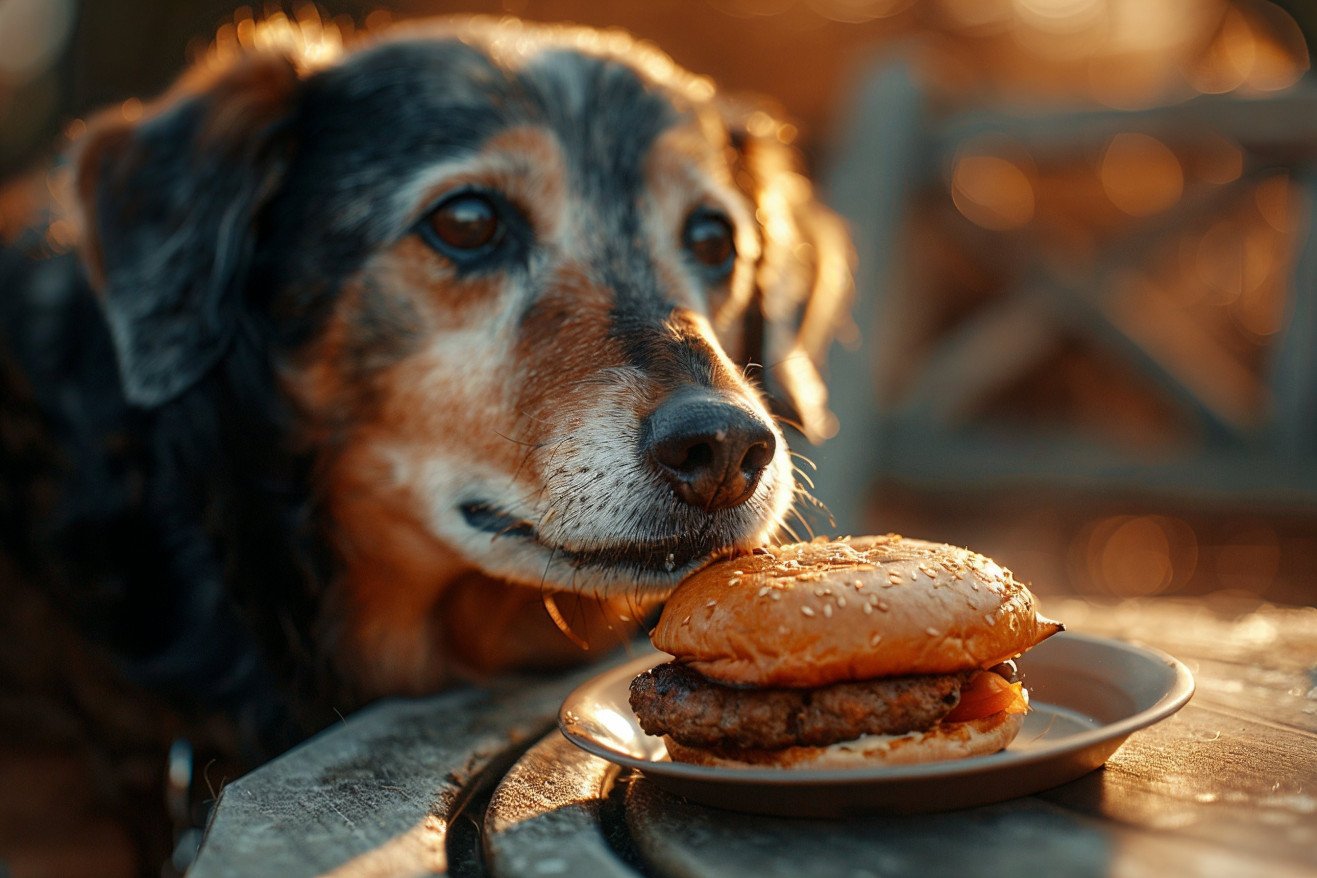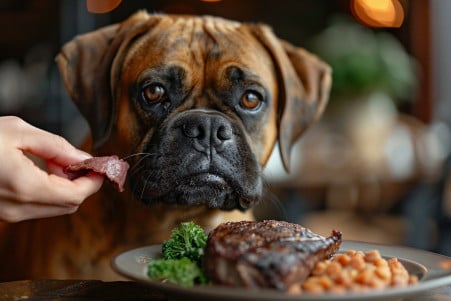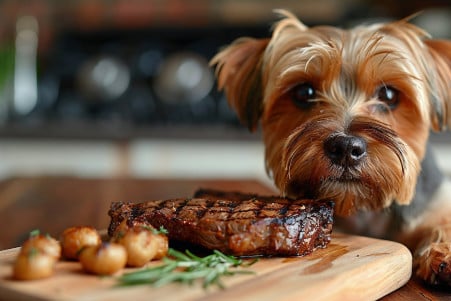Can Dogs Eat Hamburger? The Facts About Feeding Burgers to Fido
16 May 2024 • Updated 16 May 2024

If you're in the habit of giving your dog your leftovers, you may be asking yourself - can dogs have hamburger? While a small amount of plain hamburger meat is safe for dogs, the burgers you get from most restaurants and fast food places are often packed with too much fat, salt, and other ingredients that can upset your dog's stomach.
In this article, we'll explore the studies and expert opinions on feeding dogs hamburger. We'll cover why hamburger isn't the best option for your dog, how much is too much, and some other protein sources that may be a better choice. With a little help, you can make sure your pup enjoys the occasional human treat without any negative side effects.
Can dogs eat hamburger?
Portion Control and Dietary Considerations
Portion control is important when it comes to feeding your dog hamburger meat. According to The Native Pet, a good rule of thumb is about 1/3 pound of cooked, unseasoned hamburger for every 20 pounds of your dog's weight. That said, this delicious treat should be fed in moderation and make up no more than 10% of your dog's daily calories, according to Dr. McCullough from Fetch Pet.
For dogs with certain health issues such as pancreatitis or obesity, it's best to go with a leaner ground beef that contains only 5-10% fat, according to The Native Pet. However, for young, healthy dogs, a ground beef with a higher fat content may be a better option. If you're going to feed your dog hamburger meat, you may also want to consider a grass-fed, locally-sourced, or regeneratively-raised option, which, according to 99 Counties, can be more nutrient-rich and less likely to contain toxins.
It's important to remember that hamburger meat should be an occasional treat and not a regular part of your dog's diet. However, by paying attention to portion sizes and choosing better-quality sources of meat, you can make sure that you're feeding your dog this protein-rich snack in a way that meets their nutritional needs.
Dangers of Giving Dogs Raw Hamburger
Although dogs are able to eat raw meat, most vets recommend against feeding dogs raw hamburger or a raw food diet. According to USA Today, raw meat diets can lead to nutritional imbalances and can expose dogs and their owners to bacteria like salmonella and listeria. The FDA and other health organizations have warned against the consumption of raw pet food because of the risk of foodborne illness, as noted by the U.S. Food and Drug Administration.
On the other hand, cooked hamburger meat is a much safer option than raw because the cooking process kills bacteria and parasites. That said, PetMD says that if you do choose to feed your dog raw meat, it's important to use high-quality products and take precautions to reduce the risk of illness.
Hamburger Toppings and Condiments: What to Avoid
While plain hamburger meat can be a safe treat for dogs in moderation, many common hamburger toppings and condiments should be avoided. According to The Dog Bakery, onions, garlic, cheese, lettuce, tomatoes, pickles, and ketchup are all unsafe or unhealthy for dogs. Meanwhile, the American Kennel Club warns that bread and buns, especially those that contain raisins, grapes, nuts, or xylitol, are toxic to dogs.
In addition, fast food hamburgers from places like McDonald's are generally not recommended because they are high in salt, sugar, and unhealthy fats, according to Pets Stack Exchange. If you do decide to give your dog a hamburger, make sure it’s plain and unseasoned, with no additional toppings or condiments. This will help prevent any potential digestive upset or exposure to harmful ingredients.
Dairy and Dogs: Can Dogs Eat Cheese?
Cheeseburgers are a popular American food, but not all cheeses are safe for dogs. According to The Dog People by Rover.com, some dogs are lactose intolerant, which means they can't digest the lactose in dairy products, including cheese.
The best cheeses to feed your dog are low-fat, low-sodium cheeses like cheddar, mozzarella, and cottage cheese. Dog Food Advisor notes that hard cheeses like cheddar and Swiss have much lower lactose levels than whole milk, which makes them easier for dogs to digest.
That said, Bully Sticks Central warns against feeding dogs certain cheeses, including blue cheese, cheese with added herbs or seasonings, goat cheese, brie, and feta, because they can be dangerous or unhealthy for dogs. Cheese should be fed to dogs in moderation as an occasional treat, not a regular part of their diet, to prevent potential digestive problems and weight gain.
Conclusion: Feed Hamburger to Dogs in Moderation and With Caution
While plain, unseasoned hamburger meat can be a safe and occasional treat for dogs, it should be fed in moderation and with caution. Avoid feeding dogs raw hamburger meat or hamburgers from fast food restaurants due to the potential health risks.
When feeding hamburger meat to dogs, stick to plain, cooked patties without any additional toppings, condiments, or seasonings. Consider the dog's weight, health conditions, and overall diet when determining appropriate portion sizes for hamburger meat treats. As with any new food, introduce hamburger meat slowly and watch for signs of digestive upset or adverse reactions.


